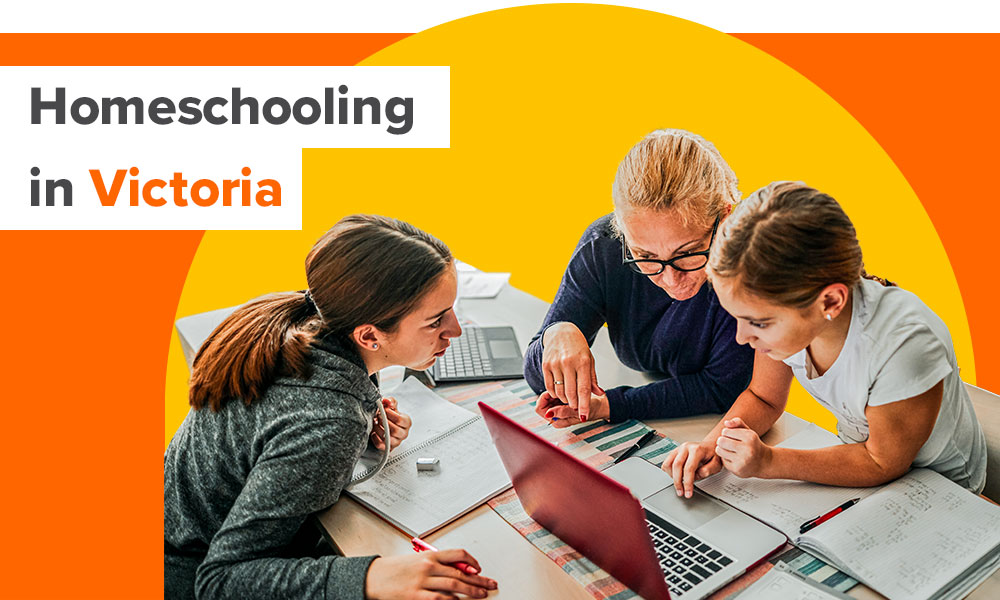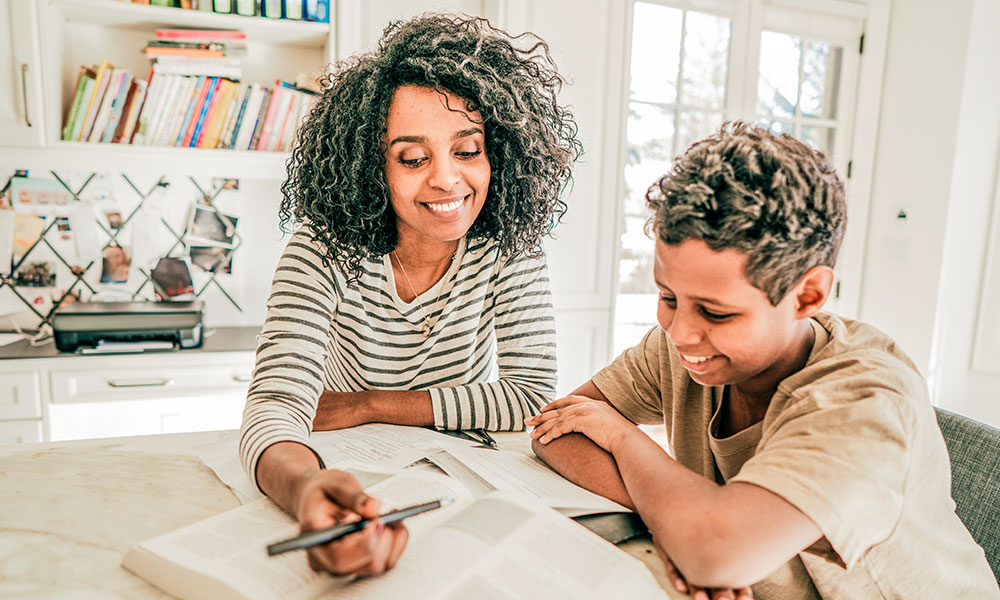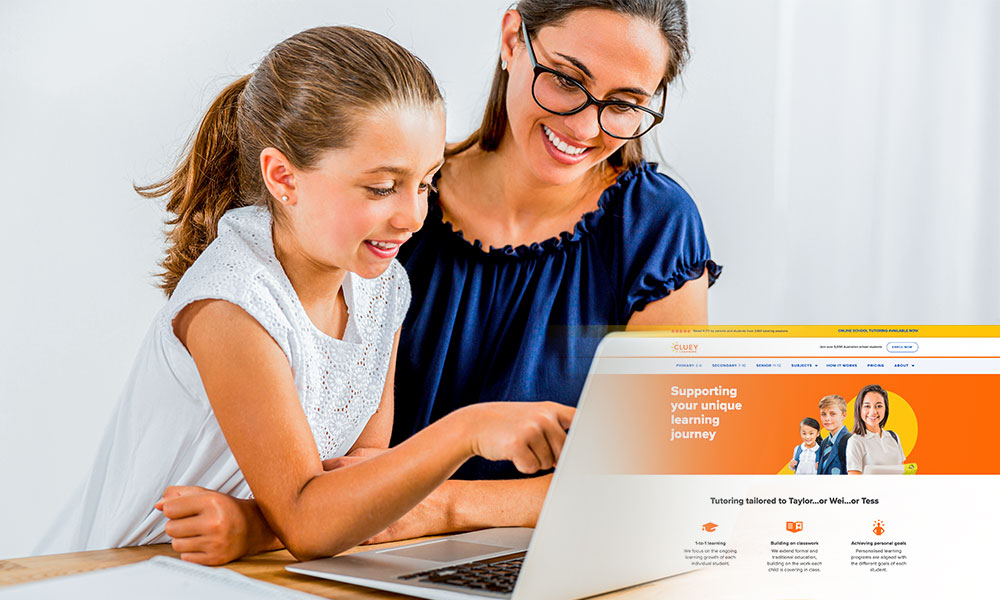Under the Education and Training Reform Act (2006) and the Education and Training Reform Regulations (2017), you can choose to educate your child either completely or partly at home during any stage of their schooling (K-12). However, you need to submit a homeschooling application and be approved by the Victorian Registration and Qualifications Authority (VRQA).

Registering for homeschooling in VIC
Parents wishing to homeschool their children must register with the VRQA and include the following:
- Records of your child’s identity and proof of relationship
- A proposed educational program for your child (including a learning plan) based on the eight learning areas outlined by the VRQA
- Details of when and where instruction will take place.
More information on the registration process and requirements of homeschooling can be found in the VRQA’s guide to home education in Victoria (docx - 5.85mb).
You can learn more about creating your own learning plan, or explore program templates provided by the VRQA here.
When you have your documents and learning plan ready, you can download the VRQA homeschooling registration form.
Requirements of homeschooling
Although flexible, the VRQA states that homeschooled children in Victoria must receive regular instruction which:
- Taken as a whole, substantially addresses the eight learning areas set out in Schedule 1 of the Act, unless the VRQA grants an exemption and;
- Is consistent with the principles and practice of Australian democracy.
These eight learning areas include:
- English
- Maths
- Sciences
- Humanities and social sciences
- Arts (music and drama)
- Languages
- Health and physical education
- Information and Communication Technology, as well as Design and Technology.
Combining school and home education
The VRQA allows for your child to be partially enrolled at a government or independent school for certain subjects or activities (example PE, NAPLAN etc). This can be done when you register for homeschooling or at any point afterwards.
Arrangements are made by each individual family and admission is at the discretion of your chosen school. The VRQA does not act on behalf of parents or intervene in any of these matters.
For more information, you can visit the Department of Education and Training’s Guidelines for Partial Enrolment for Registered Home Schooled Students.
How homeschooling reviews work
The VRQA conducts reviews to ensure that the requirements of registration and the outcomes of each of the eight learning areas are being met. Around 10 percent of homeschooling families are randomly selected for review each year.
If you’re selected, you will be notified in writing with a proposed month for review. As this time approaches, you’ll be contacted again to finalise the terms of your review.
In order to satisfy the requirements of your review, you’ll need to submit evidence that your educational program is being effectively implemented. This can take many forms, and the VRQA offers templates and examples for these here.
Evidence can be provided in one of the following ways:
- Email or mail a portfolio of work to the VRQA
- Arrange a telephone call in which you will be required to discuss your methods and the ways in which you’re meeting your learning outcomes
- Schedule an in-person meeting (this doesn’t have to be at your home) to discuss your methods and demonstrate evidence of learning.
How Cluey supports homeschooling in Victoria
Our flexible, online model means that your child can log in to our online learning platform from anywhere, utilising video, audio and collaborative whiteboard capabilities.
You can choose the areas you’d most like to focus on and specify your learning goals. Our programs can be tailored to your teaching philosophy and the needs of your child. What’s more, you’ll receive a report at the end of every session which can form part of your portfolio of learning progress.
Learn more about homeschooling support with Cluey >>
FAQs
What do I need to consider before I homeschool?
Although you need to make some decisions around your approach and learning plan, homeschooling is first and foremost an incredible time commitment. It’s important to be sure that you have the time, energy and patience required to teach your child, and consider whether this will get in the way of paid work or other commitments.
How old must my child be before I register them?
Children are eligible for homeschooling registration if they turn six in the year homeschooling is intended to begin.
What happens after I register?
Once you submit a written application and learning plan to the VRQA, your case will be reviewed and you will be notified of the outcome within 28 days. If further information is required, you will be contacted and asked to provide additional documents or revise your educational program..
What happens if my application for homeschooling registration is refused or cancelled?
If your application is denied or your registration is cancelled, you can appeal the decision by requesting an internal review conducted by a VRQA subcommittee. This appeal must be lodged within 28 days of being notified of the VRQA’s decision.
The VRQA’s homeschooling internal review policy can be found here and an internal review application form can be downloaded here.
What happens if they refuse my application for registration after an internal review?
If the authorised person conducting the internal review confirms the original recommendation that registration be refused or cancelled, the VRQA will notify you in writing with the reasons for the recommendation. The notice will also advise you of your right to appeal the recommendation to the Victorian Civil and Administrative Tribunal (‘VCAT’) within 28 days of the notice.
How can I make sure I get approved??
The best way to ensure a positive outcome for your application is to do your research on what’s required, prepare the relevant documentation and develop a detailed learning program. You can explore the VRQA’s learning program templates here.
Will I be monitored by inspectors while homeschooling?
If you’re one of the families chosen for review each year, you will be required to demonstrate evidence of learning and progress as part of your homeschooling plan (see above). However, for the most part, you’ll be left to implement your child’s curriculum on your own.
What happens if I’m chosen for a review?
Each year, around 10 percent of homeschooling families are randomly selected for review by the VRQA to ensure that the requirements of registration and compulsory learning areas are being met.
In order to satisfy the requirements of your review, you’ll need to submit evidence of your educational program or arrange a discussion to demonstrate these outcomes via phone or in person.
What are the essential subjects/curriculum I need to teach?
Although there is no set homeschooling curriculum, the VRQA states that homeschooled children in Victoria must receive regular instruction in eight core areas. These include English, Maths, Science, HSIE, Arts (music, drama), Languages, PDHPE and Information and Communication Technology (including Design and Technology).
How much time should I spend on each subject?
You might find that a four day week works best, or five half days. You need to ensure you cover the eight required areas set out by the VRQA, but the way you teach them and the time you spend on each subject is entirely up to you.
What if my child has special needs?
If you have a child who for any reason doesn’t fit the “ordinary” box, homeschooling could be a positive option. Homeschooling can often take the stress out of structured lessons, allowing children to learn at their own pace and in their own way. For special needs, always seek as much support as possible, both to ensure you’re teaching to your child’s unique needs, and to connect with other parents or teachers who might be experiencing similar challenges.
How do I plan my homeschool/learning program?
You could plan your own curriculum based on the learning outcomes defined by the VRQA or base your program on one of their sample templates here.
There are also several out-of-the-box homeschooling programs, many of which are developed by education experts and based on different approaches and teaching philosophies. Just ensure these programs take into account the unique requirements of the state in which you’re registered.
How do I document my homeschooling progress/portfolio?
There’s no one way to document your homeschooling portfolio. You might put together a collection of work, which would look different depending on the age and ability of your child. A written diary or essay samples are one example. Maths worksheets, stories based on historical understanding and other creative, inquiry-based studies are other options. The VRQA is quite flexible as long as you’re showing evidence of learning progress in each of the eight areas outlined above.
Do I need formal teaching qualifications to homeschool?
You don’t need any formal training to become a homeschool teacher. As long as you meet the requirements and show evidence of learning, you’re set!
What do I do if I’m overwhelmed?
Will you be able to cope with the mammoth undertaking that is homeschooling? The short answer is yes — when there’s a will there’s a way. But it’s important to understand the realities of homeschooling and seek support in the form of outside tutoring if you feel yourself burning out.
Victoria also allows parents the option of combining school and home education (called partial enrolment) in order to address subjects you may not feel comfortable teaching, or simply to reduce some of the burden placed on you.
Does my homeschooled child really need to complete Year 11 or 12?
Like mainstream education, progressing to a senior level is entirely up to you and your child. In Victoria, it’s compulsory for a child to participate in education, training or employment (or a combination of these) until the age of 17.
Homeschooled students who choose to undertake the VCE or VCAL need to cease registration with the VRQA and enrol with a registered senior secondary provider.
Further details about formal certification can be found in the Victorian Government’s guide to home education in Victoria.





